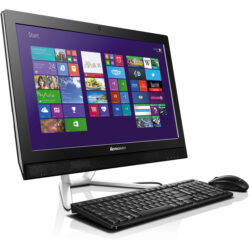Technology has advanced so far that everyone can now make comics! But should they?
MAKING OUR LIVES EASIER?
 Much of my professional life was made up of communications. I used to generate newsletters and other publications that helped inform employees and others about what they needed to know.
Much of my professional life was made up of communications. I used to generate newsletters and other publications that helped inform employees and others about what they needed to know.
One of the biggest developments in recent decades (besides the Internet) was the arrival of what was then called “word processing” software. Before that came along, we used to use “ditto” machines in which we hand-generated copies of publications to be given to our intended audience. Granted, the copy machine (which soon was mistakenly called the “xerox”) helped this process along.
Then came the computer, and with that came a piece of software called WordPerfect.
For the very first time, we could edit and update publications at the last minute before they went to the local printing press. Not only that, but the computer could now tell us when we were not spelling words correctly. And it often could show us when we were messing up our grammar.
As an editor, I found this extremely helpful! But I had to worry that this thing would eventually replace my job function. After all, if it could do these things that were often included in my job description, why pay someone a salary to do the same thing?
Like many other professionals, I’ve come across this several times in my work experience. I used to generate newsletters that were included with each employee’s paycheck as well as regularly distributed publications that got the word out about what certain professionals were doing in the organization I worked for.
Now, of course, newsletters and the like are things of the past. I remember when Disney announced that they would no longer be producing their slick, four-color magazines any longer. A co-worker of mine seemed to live for those things to come in her mail each month! She grieved at the loss of them!
We now have blogs and email newsletters, among other things, and the computer has advanced so far that we have AI (artificial intelligence) that is not only checking grammar and the like, but also can write your articles and columns as well as you can… or even better! Perhaps this column will even be written by a computer instead of me someday soon! (Never mind… I never said that, okay?)
In the last several years, I noticed that the same technology made the production of comics much more accessible to the general public. Art programs like Photoshop meant literally anyone could draw and print out their works for others to admire and possibly use. We could now use computer programs to lay out and send to the press comic pages for printing and distribution to local comics shops.
With the arrival of computer templates and other software to make things as easy as possible, some of it actually looked like a professional artist had made it! (I’ll talk more about AI-generated art and the like sometime soon, by the way.)
But the question remains, should we actually do that?
QUANTITY DOES NOT EQUAL QUALITY
 One of the things I noticed about the software I was using was the fact that you could actually train it to do things the way you wanted it done. I’ve often found users overwriting grammar and spelling to match what they preferred instead of what they should have actually been making.
One of the things I noticed about the software I was using was the fact that you could actually train it to do things the way you wanted it done. I’ve often found users overwriting grammar and spelling to match what they preferred instead of what they should have actually been making.
I used to work for a well-known metropolitan newspaper, and one thing that the organization began to notice was that, as software became more and more sophisticated, more and more errors were infiltrating the final daily product! People were actually writing over what their computers were telling them to do, and customers were letting the newspaper know that they had found those mistakes when they read it! And they were NOT happy about it!
Even today, when computers can do more than ever, does that mean someone is an artist if they can use an art program? Sadly, the answer is no! Even today, with AI generating artwork, it still doesn’t mean it’s good enough for the discerning fan.
As an editor/proofreader, I can’t help but notice when typos and misspellings come my way. If someone doesn’t spell it right when they are communicating over the visual media, it can diminish trust and even sales of the item you want people to buy from you. You should always put your best foot forward, especially if you hope someone will purchase what you are selling.
So, what about comic books?
SOME PEOPLE SHOULD, SOME PEOPLE MIGHT…
 It used to be that you had to get the attention of DC or Marvel in order to break into comics. While it is great to start that way if you can, there are now other avenues people can pursue to break into the industry.
It used to be that you had to get the attention of DC or Marvel in order to break into comics. While it is great to start that way if you can, there are now other avenues people can pursue to break into the industry.
I’ve long been a proponent of Indie comics, which is where many creators learn how to make the books that tell their stories.
I’ve often heard from creators that Marvel especially is reading the Indie comics, and they use that info to fill openings in their teams. I could name some names, but I’d prefer not to. They see a writer they like, they approach that person about taking over the reins on the title that has an opening. I also know that some creators have produced their own handmade comics in order to get the word out about their talents.
It’s a common saying that if you want to write for a living, then write! To learn how to be an artist, draw! Nothing can replace the sharpening of your skills through experience.
Yes, use the tools that can help you be successful, but remember that they are just that—tools! Your abilities and talents will be what people want, not the tools, when it all is said and done! Not everyone will be able to make the comics fans want to enjoy. However, the good creators will always rise to the top, I believe.
